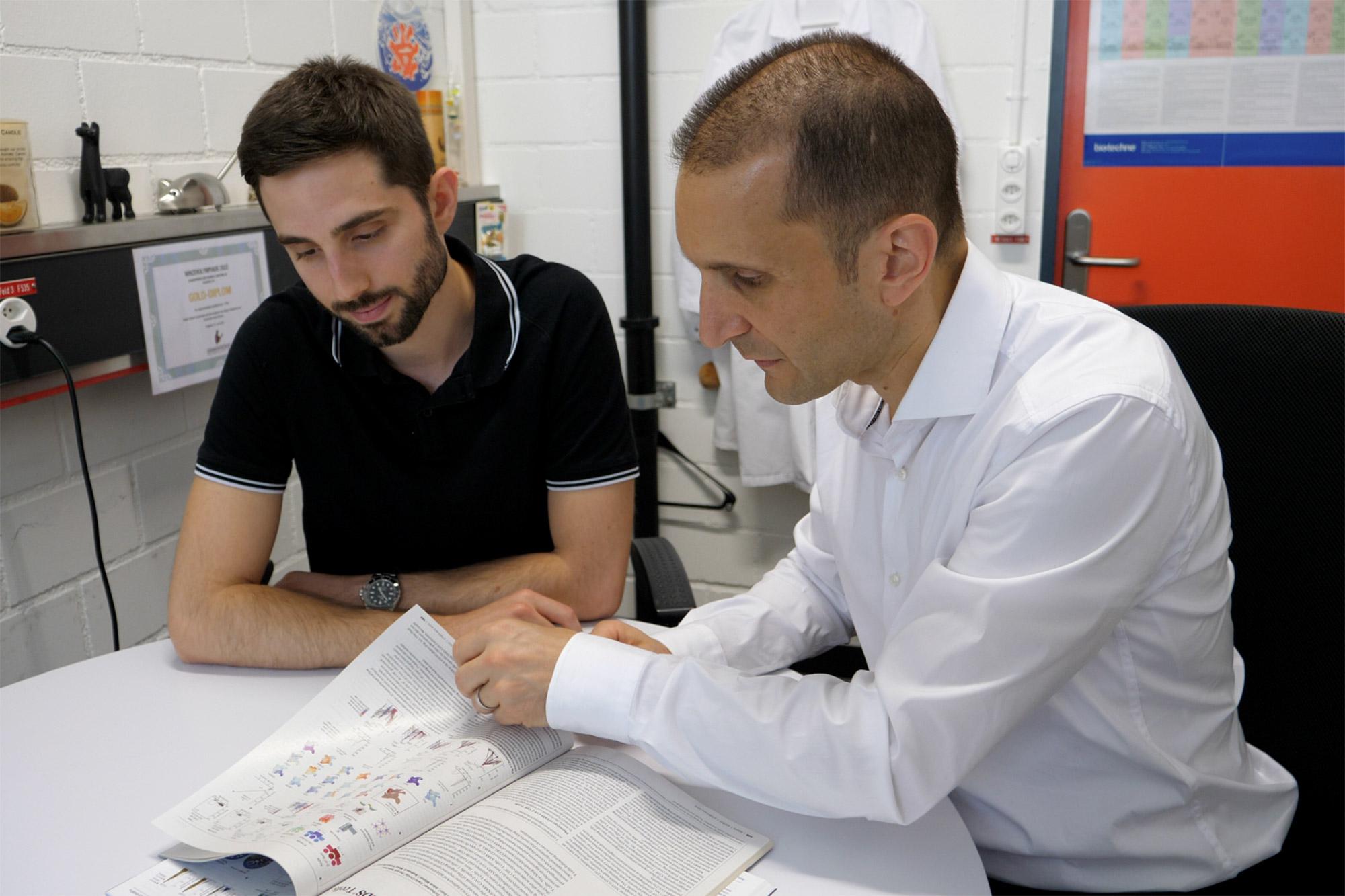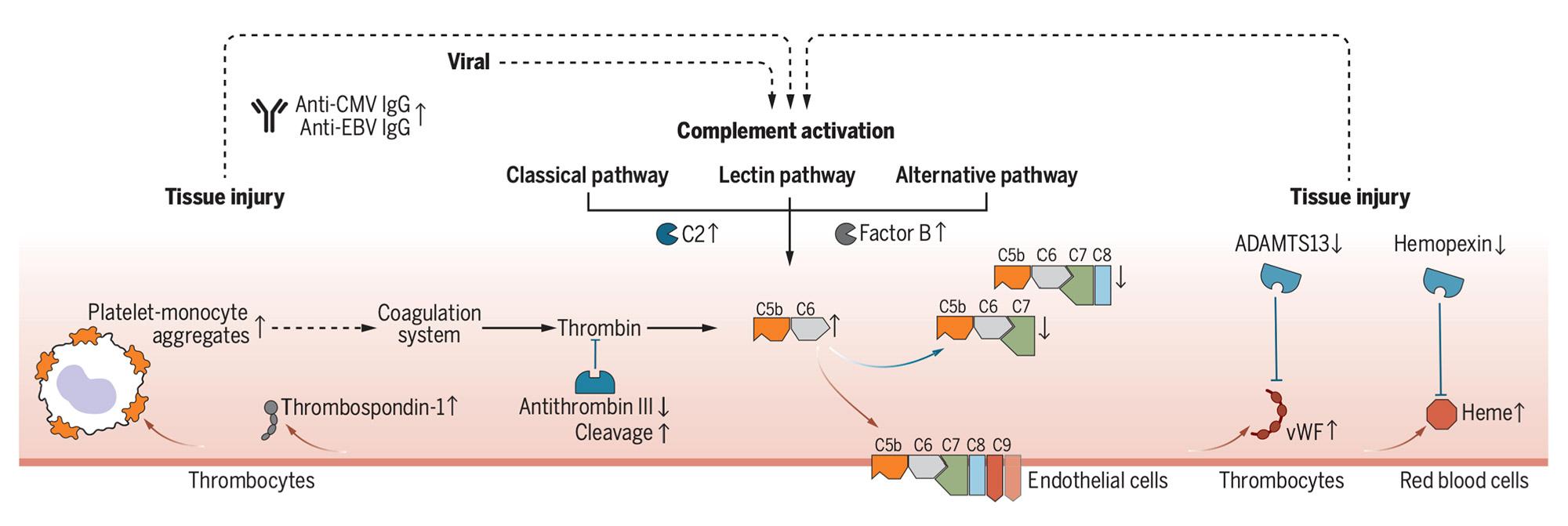Thromboinflammation and complement activation in active long Covid

A research team led by Onur Boyman and Carlo Cervia-Hasler at the Immunology Clinic of University Hospital Zurich and Zurich University has published an article in Science describing a new disease mechanism for long Covid.
Infection with the SARS-CoV-2 virus can produce a variety of clinical outcomes. A significant proportion of infected individuals do not recover from acute Covid-19 but develop long-term symptoms known as long Covid. The manifestations of long Covid can vary widely. The most commonly reported symptoms are fatigue, intolerance to physical exertion, shortness of breath and mental impairment. The reasons and disease mechanisms for these persistent symptoms are not yet known. Nor have any diagnostic tests or targeted treatments been developed.
The researchers monitored 113 individuals with Covid-19 for up to a year after their acute infection with the SARS-CoV-2 virus, as well as a parallel group of 39 healthy controls. After six months, 40 of the individuals with Covid-19 had active long Covid symptoms. The researchers analysed more than 6,500 proteins in the blood of the study participants, which they measured both during acute Covid-19 and six months later.

Research into the altered proteins confirmed that in long Covid an immune defence component known as the “complement system” is activated. In healthy individuals, the complement system helps to fight infection and to eliminate damaged and infected body cells. If the complement system subsequently fails to return to the resting state and remains activated, it can also damage healthy body cells. This is exactly what the researchers observed in individuals with active long Covid. These individuals also had elevated blood values for markers indicating damage to various body cells as well as to red blood cells, platelets and blood vessels. The alterations point to interaction between proteins in the complement system involved in blood clotting, repair of tissue damage and inflammation. The blood values of persons with long Covid who recovered from their disease within six months returned to normal. With the help of artificial intelligence, the researchers were able to select a number of blood markers facilitating the diagnosis of active long Covid.
This study shows that the complement system plays an important role in long Covid disease. Active long Covid has a blood protein signature marked by increased complement activation and thromboinflammation. Tissue injury may also be complement-mediated and, in turn, may activate the complement system. Furthermore, complement activation may be driven by antigen-antibody complexes, involving autoantibodies and antibodies against herpesviruses, as well as by interaction with a dysregulated coagulation system. The findings can be used to develop better diagnostic solutions and possibly also more targeted therapies for long Covid sufferers.
